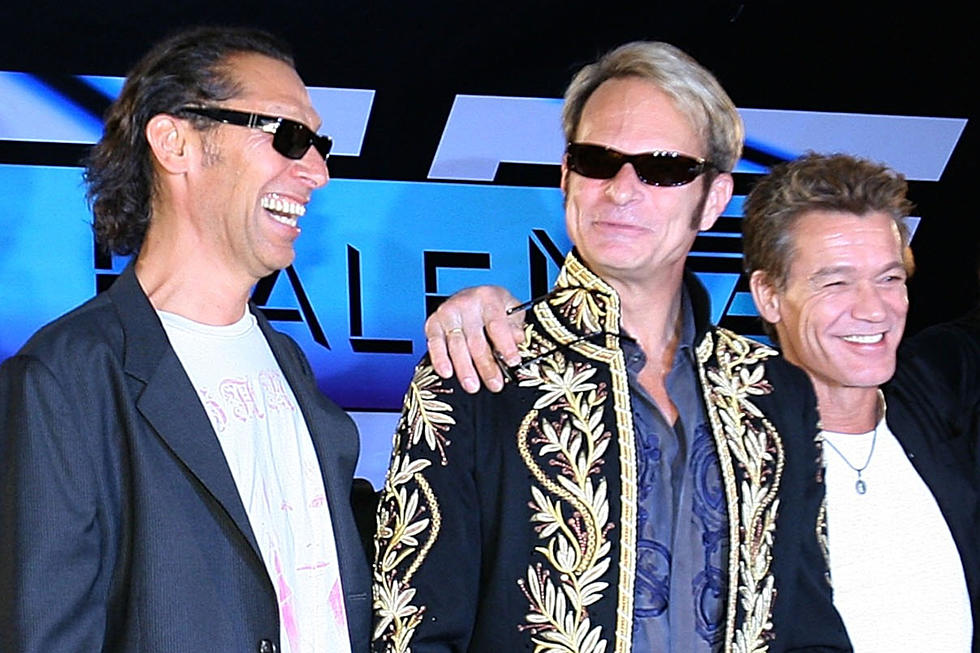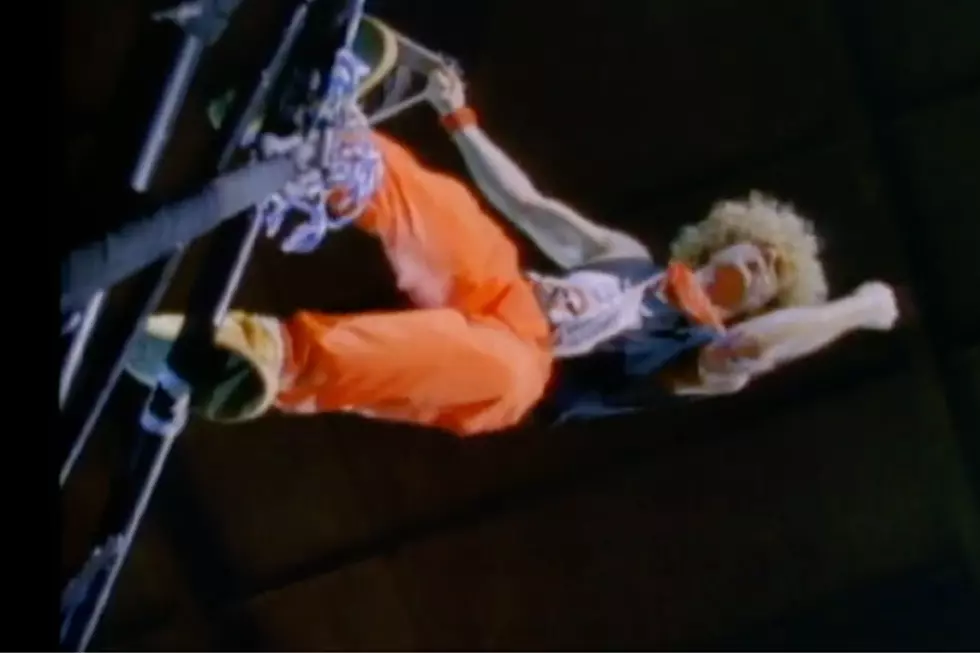Weekend Songs: David Lee Roth, ‘Just Like Paradise’
Classic rock is about heavy hooks, power chords and tight harmonies. But it’s also about letting loose and enjoying the good times. And there’s no better time for that than Friday evening, when we pick up our paycheck, punch out of work and enjoy a couple days of much-needed rest and relaxation.
This weekend, as we near the paradise of 48 hours away from work, we're reminded of a time when it looked like David Lee Roth was ready to forge a solid career away from Van Halen, leaving fans to sample a wealth of rock 'n' roll riches that included Diamond Dave solo hits like 'Yankee Rose' as well as '80s VH classics such as 'Best of Both Worlds' and 'When It's Love.' That moment was unfortunately short-lived, but few could have guessed it in early 1988, when Roth released his second solo outing, 'Skyscraper,' just a few months before Van Halen returned with 'OU812.'
One of 1988's more hotly anticipated rock records, 'Skyscraper' followed Roth's full-length solo debut, 1985's double-platinum 'Eat 'Em and Smile.' And given that the new set of songs reunited the killer band Roth had assembled for 'Smile' -- including Steve Vai on guitars, Billy Sheehan on bass and Gregg Bissonette on drums -- fans were primed for another dose of the Dave they'd come to know and love. It came as something of a shock when they discovered that Roth had something slightly different in mind for 'Skyscraper' -- specifically, a more keyboard-heavy sound that incorporated emerging pop trends at the expense of the rawer, more muscular sound he'd adopted for 'Eat 'Em and Smile.'
Although this approach paid immediate dividends when the album's first single, 'Just Like Paradise,' broke the Top 10, Roth's approach for 'Skyscraper' proved immediately divisive -- and not just among fans. Sheehan, whose songwriting contributions to the earlier record were just as crucial as his distinctive bass sound, departed the band at the tail end of the sessions for the album, with Vai soon to follow. Sheehan talked about his days in the Roth band during a recent interview with Ultimate Classic Rock, and talked specifically about 'Paradise' in these additional comments, published exclusively here for the first time.
"I don’t even play bass on 'Just Like Paradise' -- it’s all synth bass," Sheehan recalled. "Dave had a vision. In retrospect, he was right -- he thought this dance-music thing was going to be huge, so he wanted to kind of move the band over into that dance-beat kind of thing, so that was that synth thing. He was right -- dance became huge. He foresaw the future and he was right. However, if you’re a rock band, the dance people don’t ever want to talk to you. And if you’re a rock band trying to do dance, they don’t care -- they want to hear the dance people doing dance."
While 'Just Like Paradise' proved successful in the short term, its pop sheen -- and the keyboard-heavy sound Roth used for 'Skyscraper' in general -- likely hurt Roth's rock credibility in the long run. "It’s pretty rare for somebody to break over from rock into dance," Sheehan admitted. "It’s happened and it will happen, but it didn’t happen [here]. Dave, I credit him for having the guts to take a stab at it, because to be secure enough in your own mind to really make a stylistic move that’s quite dramatic like that and that takes a lot of guts. If the experiment would have worked, he would have been the king of the world. Unfortunately, it didn’t -- but I’m glad he tried. I give artists a lot of credit who decide to take a left turn."
Vai weighed in during a separate interview with the Van Halen News Desk, admitting that 'Just Like Paradise' "was too 'pop' for me, it was too 'Glee,' you know?" Asked about rumors that he hated the song, he responded, "'Hate' is a strong word. I didn’t hate it; I enjoyed playing anything that I played in that band. It just wouldn’t have been my choice. But I still enjoyed it, and I think I did a great job on it ... But yeah, I wasn’t a fan of that song. I didn’t like it when it was written. I tried not to get it on the record. [Dave] liked it, and I did my best with it."
Vai's unwilling participation helped anchor the track, making it one of the more successful pop-rock hybrids on the record -- not to mention a killer single whose rapid chart ascension was fueled by a suitably gonzo video featuring Roth on a four-day climb of Yosemite's Half Dome mountain between standard performance clips (which co-starred Vai's distinctive triple-necked heart-shaped guitar). Unfortunately, while 'Paradise' gave Roth his biggest self-penned solo hit, it would also serve as his final appearance in the Top 40. He'd continue to enjoy rock-radio airplay into the '90s, but Vai and Sheehan's departures ushered in an era of personnel turnover and commercial decline.
Still, even if those synths rubbed some fans the wrong way in 1988, they don't sound too bad now -- and that combination of Roth's stacked vocals and Vai's squealing electric leads still serves as a fitting send-off to another five days of working for the Man. We've been meant for this since we were born, UCR faithful, and you know what to do next: Scroll on up to that video at the top of the post, hit play, turn up the volume and let the weekend start now.
More From Ultimate Classic Rock









